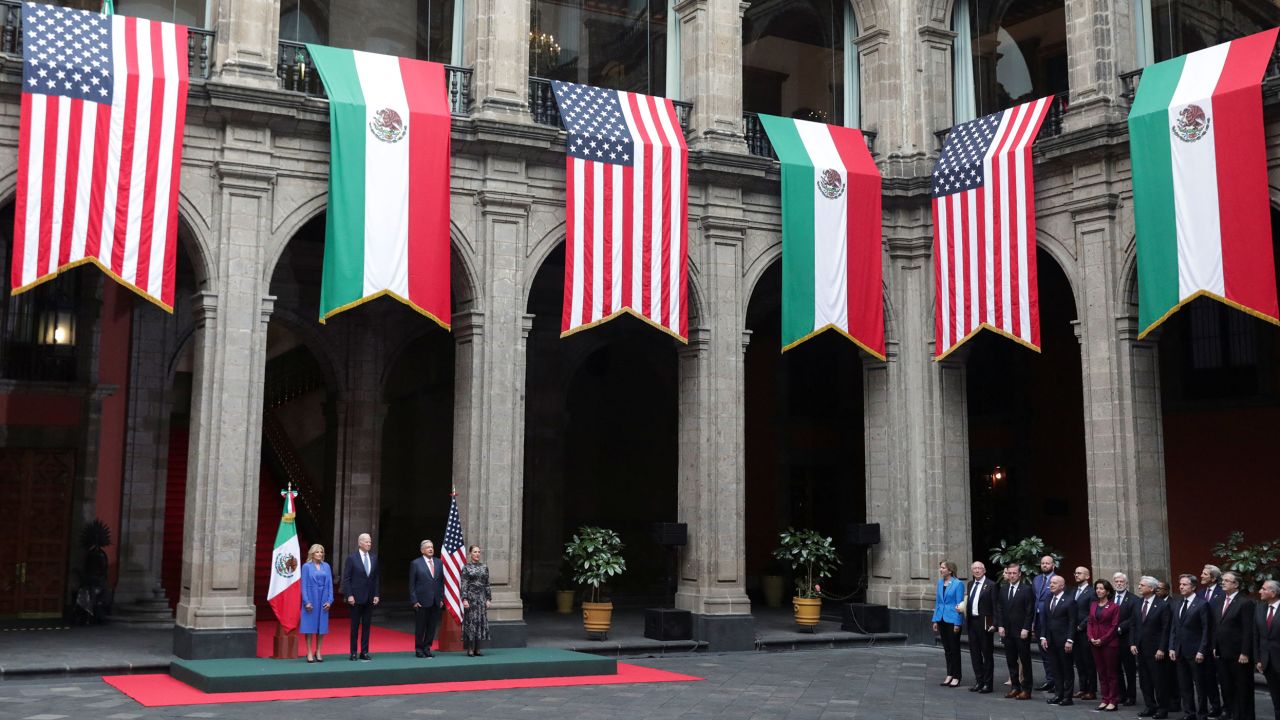The three friends smile and hug each other. There are the photos. The three friends and their teams also argue. There are the documents. In the 25 years that NAFTA lasted, there were 77 disputes over trade issues, about three per year. With the T-MEC, the controversies have increased: since 2021, 17 disputes have started. More than eight per year.
The data is from the US Mexico Foundation and the Council of the Americas. The United States is the most litigious: it has filed nine disputes against Mexico and two against Canada. Mexico, the most passive in this line: it has only filed one case, against the United States, for the rules of origin of the automotive sector. It was inevitable. In this, it is accompanied by Canada.
Labor is the area that has generated the most disputes: there are five, from the United States against Mexico. Four of them have been resolved in the terms that the United States has proposed and the fifth is on the way to being resolved in this way. These are issues related to the lack of union democracy and refer to companies that are in Mexican territory but that carry out export activities to the United States.
Labor disputes did not exist in the days of NAFTA, because the labor chapter was only an appendix to the agreement. To comply or not to comply was irrelevant. The appendage had no teeth or claws to punish those who misbehaved. That changed with the USMCA. It is a treaty in which the United States unions put a lot of pressure on to prevent Mexico from having competitive advantages through low wages or the use of company unions. To ensure compliance, the US Embassy in Mexico has increased the number of labor experts on its staff and has also allocated a budget of more than $10 million annually, among other things to train and educate Mexican workers about their rights. unions.
Of the 17 controversies, there are three that capture the spotlight and attention. The issues are relevant, in symbolic terms, but also because of the amount of money that is at stake and the possible disruptions to value chains. Mexico energy policy; interpretation of the rules of origin for automobiles by the United States and a possible ban by Mexico on the entry of genetically modified corn for human and perhaps animal consumption.
The Three Amigos Summit did not issue signals related to these three issues. We can assume that no one wanted to ruin the party or that, outright, the space for complicated issues was monopolized by migration and the fight against fentanyl trafficking. The fact is that the time has come to know the opinion of the panel on the automotive rules of origin. Unofficially, it is known to be favorable to Mexico and Canada. It is very important to know the details and the US response. You can correct the bad practices or accept the sanction.
The dispute over Mexico’s energy policy was not discussed, according to Foreign Minister Marcelo Ebrard. The Secretary of Energy of the United States, Jennifer Granholm, did not even travel to CDMX, but she took time to issue a statement on Tuesday asking Mexico to make a greater effort to increase its actions in terms of clean energy and reach the generation goal of 35% by 2024. We can think of this statement as something similar to the pressure they put on the player who is going to take a penalty in the final of a championship. Remember that the Secretary of the Economy, Raquel Buenrostro, has been in contact with her US counterpart, Katherine Tai. Buenrostro’s mission is to convince the United States to give up on reaching the panel. For this, it is key to know what concessions can be wrung from Manuel Bartlett, Rocío Nahle and the “hards”. If Mexico does not give in, there will be a panel and sanctions will come. It is energy nationalism vs alignment with the environmental energy policy of our partners.
The corn controversy hasn’t reached a legal stage, but it’s hot. Mexico is the world’s largest corn importer. It buys around 17,000 million dollars a year from the United States. For them, that’s 45,000 direct jobs related to yellow corn in Kansas, Nebraska and Missouri. The Secretary of Agriculture of the United States warns / threatens that his country is analyzing all options to prevent Mexico from banning the entry of genetically modified corn. A World Perspective study estimates that the price of non-GM corn could rise 48% and that the price of tortillas could rise 16% on average. Various industries that use corn would suffer disruptions in their supply, including those that produce beer, soft drinks, confectionery and pharmaceuticals. The time has come to say goodbye to two of the three friends. I don’t know if it’s sensible to welcome you to the New Era of Commercial Disputes.
lmgonzalez@eleconomista.com.mx
hartford car insurance shop car insurance best car insurance quotes best online car insurance get auto insurance quotes auto insurance quotes most affordable car insurance car insurance providers car insurance best deals best insurance quotes get car insurance online best comprehensive car insurance best cheap auto insurance auto policy switching car insurance car insurance quotes auto insurance best affordable car insurance online auto insurance quotes az auto insurance commercial auto insurance instant car insurance buy car insurance online best auto insurance companies best car insurance policy best auto insurance vehicle insurance quotes aaa insurance quote auto and home insurance quotes car insurance search best and cheapest car insurance best price car insurance best vehicle insurance aaa car insurance quote find cheap car insurance new car insurance quote auto insurance companies get car insurance quotes best cheap car insurance car insurance policy online new car insurance policy get car insurance car insurance company best cheap insurance car insurance online quote car insurance finder comprehensive insurance quote car insurance quotes near me get insurance






